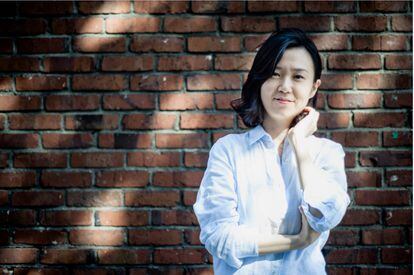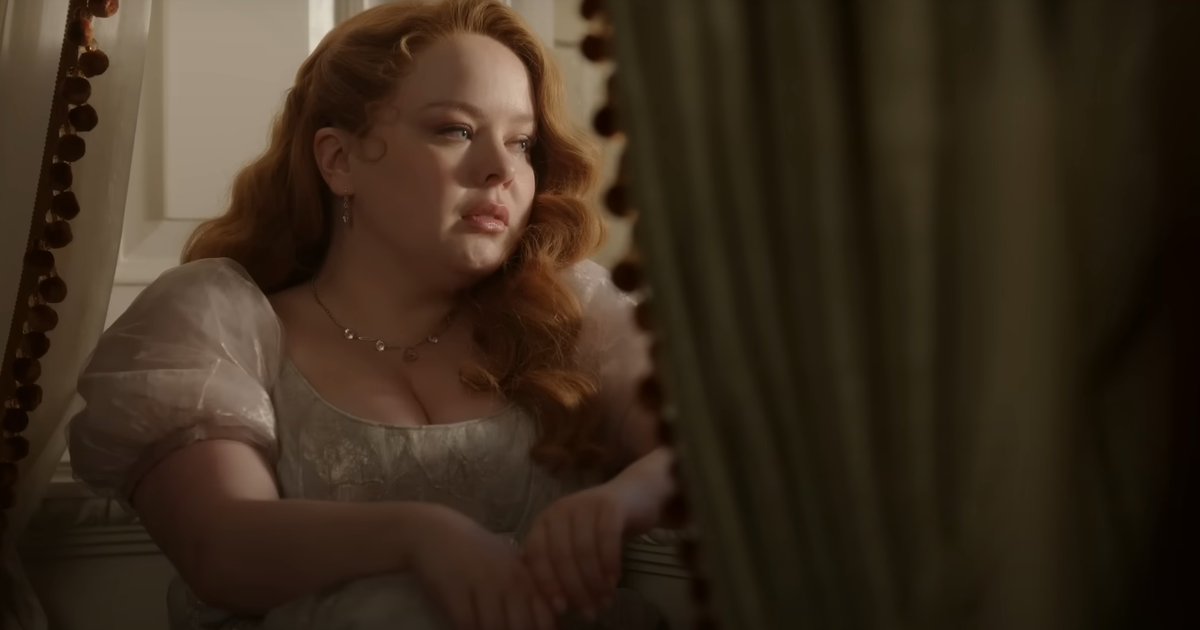This is the web version of Americanas, the newsletter of EL PAÍS America that deals with news and ideas with a gender perspective.
To receive it every Sunday you can subscribe
at this link
.
If there is an article in which a journalist can write in the first person, it is this, because I have read a good handful of romance novels.
There is almost certainly no one in my metaverse who can say the same thing.
Or maybe yes.
It is not an easy confession, because romantic literature is still a discredit to the intellect.
It's called feminine for a reason.
That is the reason for my great surprise at the furor caused in the media by The Bridgerton series, broadcast by Netflix, based on a romance novel by Julia Quinn that no newspaper would publish a review in its literary pages.
Romantic love is killing thousands of women in the world.
It would be good not to take it as a joke.
And The Bridgertons, like so many other romantic sagas, are the compendium of all machismo: women who savor the jealousy of their suitors as a triumph, forced to a decency designed exclusively for them;
men who fight to blows with others to defend their possession, only theirs and no one else's;
young princesses in doll dresses that prevent them from walking, riding horses;
quinceañeras delivered by parents or siblings to their new owner for life;
women whose only task is to have a husband by their side with whom to conceive offspring;
infantilized, virgin, helpless, without opinion beyond the domestic sphere, which they must dominate, from embroidery to parenting.
And them,
the owners of the public sphere in all its dimensions, sovereigns of their thought and masters of all life, who grant permission or prohibit with the same ease with which they exercise their privileges and freedoms.
What in them is indecent behavior that plunges them into disgrace and humiliation for life, in their partners are elements that are valued, such as sexual experience.
And of course his brute force and his ability to provide for the family.
It is surprising, I insist, that this series has had such an echo in the media, something that would never have happened with the book, but Netflix has done it, praise it.
And all so modern.
On paper or on screen, it's a product for women: they don't see such romantic and honeyed things.
Here is how machismo is transmitted, keeping women trapped in it, so that they do not have to fight against rebellion, because in those docile women they will find the path paved to exercise their gender role without disheveled.
There is only one way to recommend a series like this: by wearing the purple glasses when one is in front of the screen.
Machismo is so crude that it seems rather made to instruct on what should not be thought or done.
Don't fall in love with someone like that, don't marry them, don't have children with those parents.
Do not obey.
If they are seduced by the individual, a little sex is enough.
The Bridgertons or any of those sagas that marry a brother in each installment, are usually set in the 18th or 19th centuries, because when it comes to those times, nothing prevents scooping prejudices and gender roles attached to women and men for ages .
Only with period novels is it possible to wash the face of machismo without complexes.
Doing it in a contemporary series would be anachronistic, right?
However, even then the first feminists were fighting to expand their rights and freedoms with blood and tears amid the repudiation of family and society.
But little is mentioned of those new airs, just some rebellious co-star who refuses to go through the London season showing up like cattle at the fair for the conquest.
The uncomfortable woman and a bit machirula, to put it that way.
These series have been introducing, however, other causes that are anachronistic for those times, but they have cared very little.
The presence of black people is abundant and they are there as if at that time a mestizo marriage was not repudiated.
There is also no lack of gay protagonists, presenting them as victims of that restrictive time.
Welcome be the demolition of these prejudices.
But machismo cannot be washed away, because it is the lion's share, without it there is no series that is worth it.
So everyone happy with the romance, the wedding and motherhood.
Even her most rebellious sister will fall madly in love with a husband and be grateful for the serenity of a classic life, ergo macho: her husband will allow her to read, and even write, so that she does not wither her precious possession between diapers.
There are no more licenses.
As far as I have read,
It is always so.
Maybe I'm wrong about the series.
(If someone has sent you this newsletter and you want to subscribe, you can do it here).
Our recommendations of the week:
Some suggestions:
🕒 A campaign: "Sister, drop the clock".
By Sally Palomino
"Sister, let go of the clock" is the new campaign of Women who were not a cover, a project of Argentine activists and feminists that seeks to break down gender stereotypes and build other narratives with the voices and stories of those who live outside of social impositions .
Last February, Mar Centenera, from the editorial office of EL PAÍS in Buenos Aires, told us about the revolution caused on social networks by the campaign "Sister, let go of the belly", which encouraged women to send photos of their bodies regardless its measures.
It was a catharsis.
Hundreds of young people and adults showed themselves as they are, without filters, without sticking their bellies.
Now, with “Sister, let go of the clock”, they tell their stories around the idea that after a certain age, women's lives lose meaning.
“#HermanaSoltaElReloj is to start releasing all those speeches that we inhabit without having questioned.
It is hacking the idea that time runs against us and not for us.
It is to make ourselves visible, because culture erases from representation the bodies and stories of women from the age of 35, coincidentally when our lives begin to look more like the ones we want and less like the ones they tell us we have to live” , pointed out the group in an interview with Infobae.
📖 A book: Kim Ji-young, born in 1982. By Lorena Arroyo
Portrait of the South Korean author Cho Nam-Joo.
My recommendation today is not an editorial novelty, but it has been a recent discovery that I wanted to share with the readers of Americanas.
The novel
Kim Ji-young, born in 1982
, by the South Korean writer Cho Nam-joo, premiered in that country in 2016 and was such a success in Asia that it ended up being made into a movie.
I ran into her a couple of weeks ago in a Mexico City bookstore when I was looking for something to read during the Easter break and was drawn to the message on the back cover: “This novel has gone from being the short story of a young Korean to become an earthquake that has shaken the women of half the world.
Kim Ji-young is a thirtysomething South Korean woman who, after becoming a mother and quitting her job to dedicate herself to raising her daughter, has a psychotic break through which she begins to speak with the voices of other important women in her life: her mother, a dead friend… From that dramatic chapter, which in her surroundings they see as an attack of madness, the author takes us through the life of the protagonist, from her childhood in the 80s to the present.
Her biography is as normal as it is plagued by the daily discrimination of a patriarchal society: mothers depressed for getting pregnant with girls, grandmothers who pamper their grandchildren without measure and despise their granddaughters, much stricter dress rules for girls than for boys. children at school, bullying in adolescence,
These daily violence and micro-machismos that the protagonist suffers, sprinkled with data on discrimination against women in South Korea, make the women who read the novel feel identified with her.
And that is precisely the success of the novel: we have all been Kim Ji-young at some point and we have many Kim Ji-young in our lives.
Thank you very much for joining us and until next Sunday!
(If you have been sent this newsletter and want to subscribe to receive it in your email, you can do so here).









